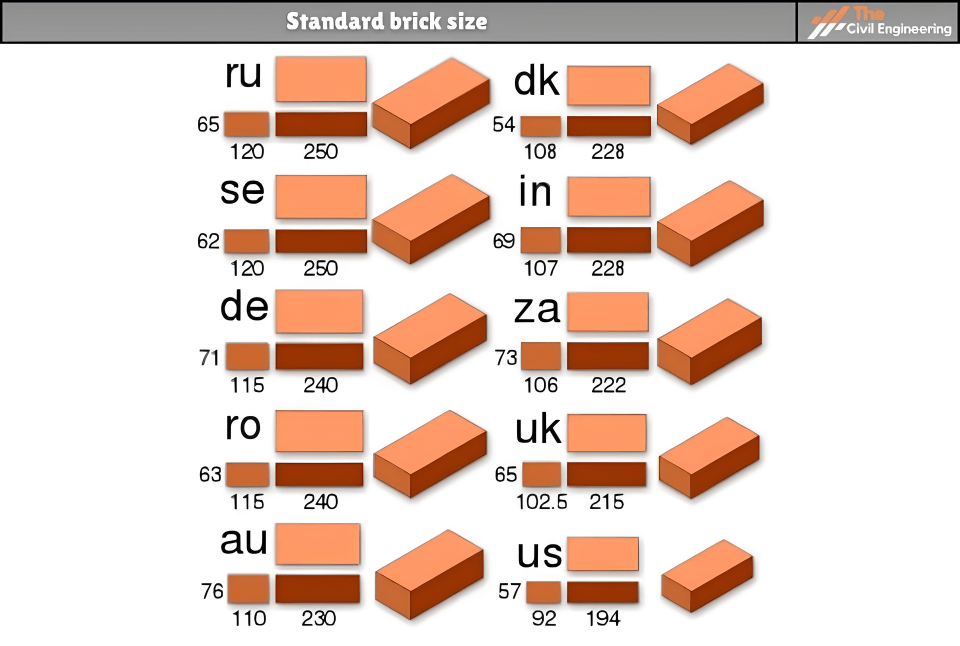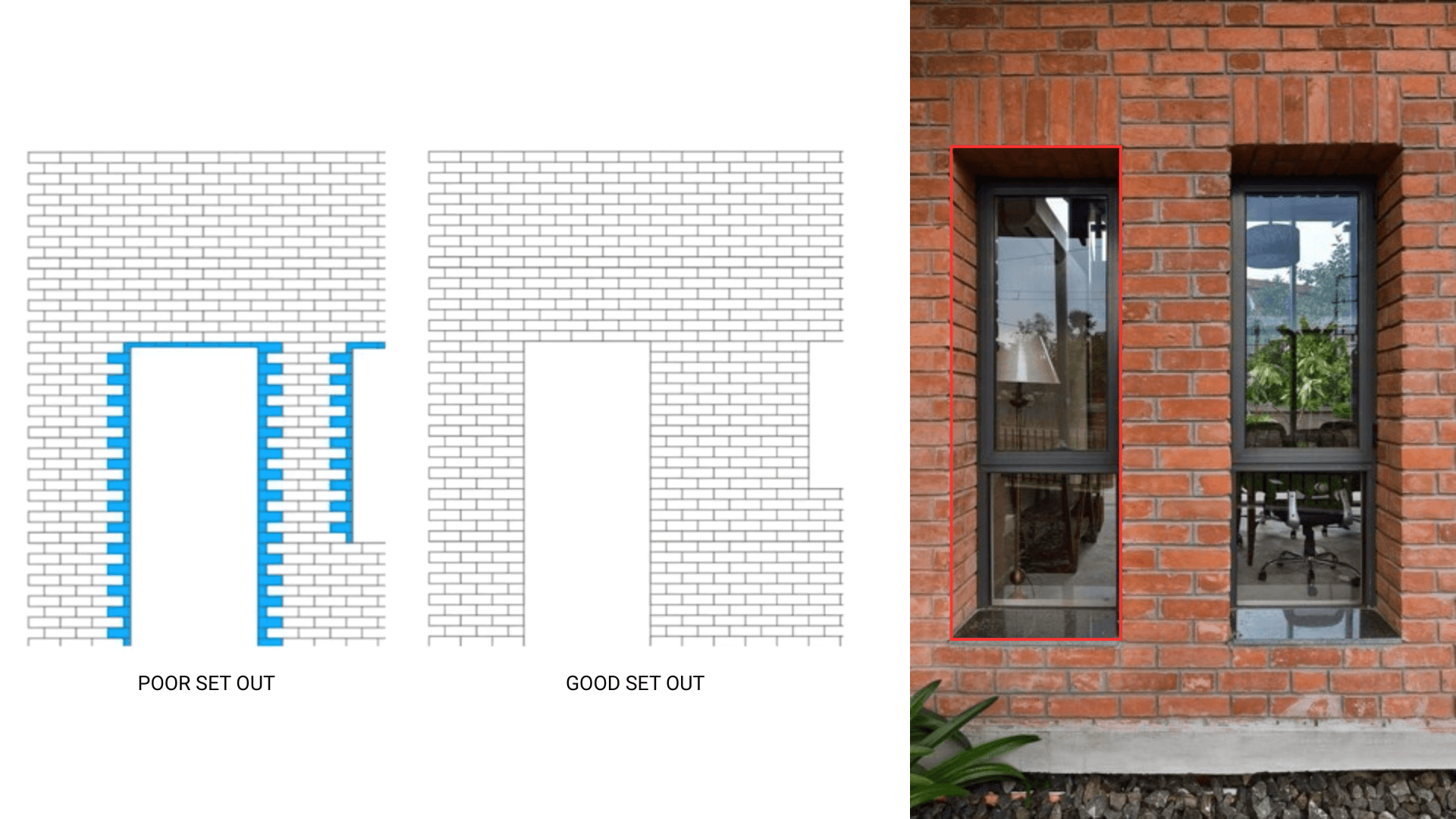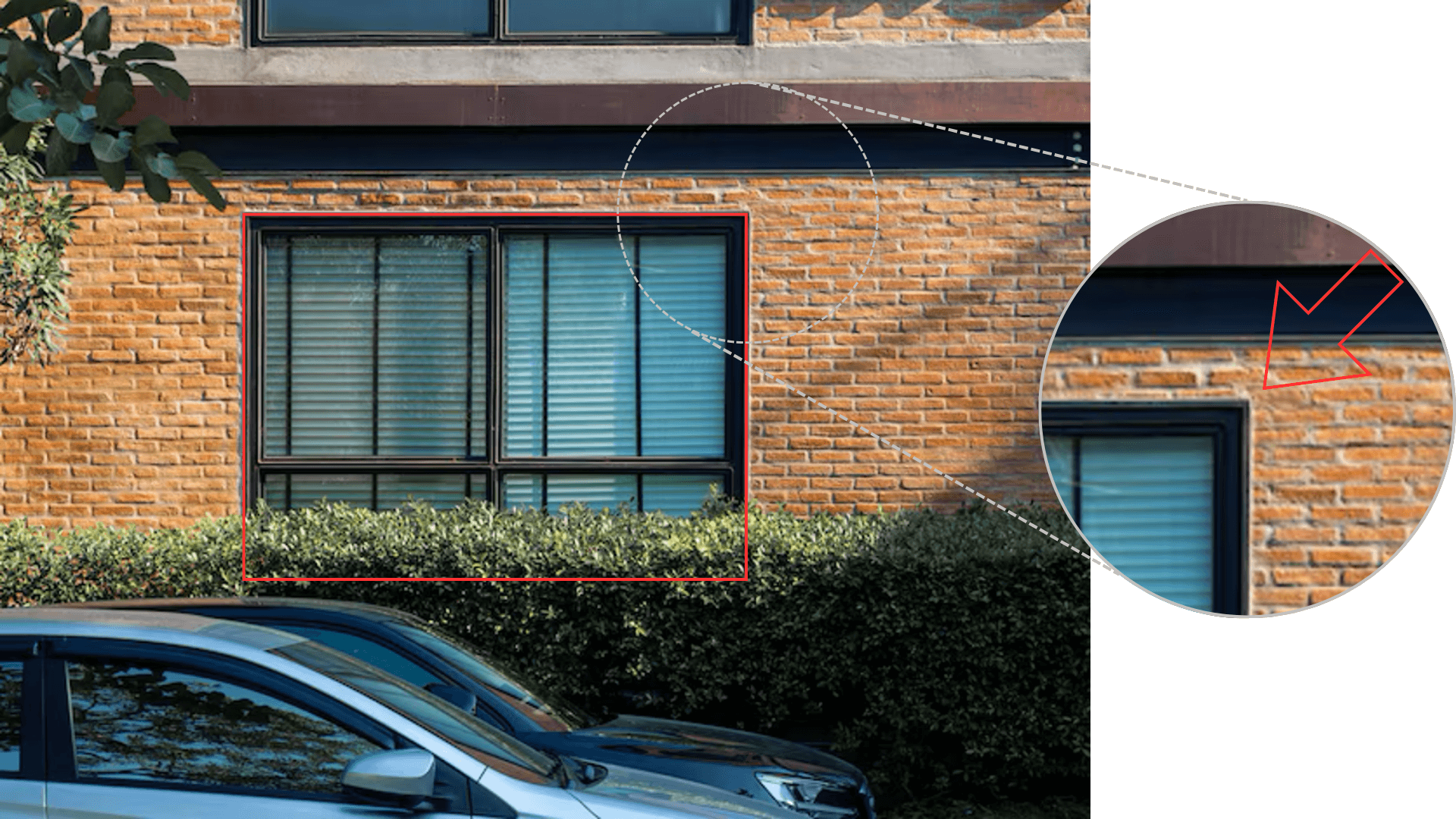Mastering Brick Design: Size, Spacing, and Visual Harmony
In architecture, brickwork is more than a façade—it’s an expression of rhythm, proportion, and intent. Yet, even the most thoughtfully conceived projects can lose their impact without brick design precision. At IAC Studio, we help architects elevate their vision by ensuring every brick aligns with both technical accuracy and visual harmony.

1.Brick Bonding & Design Precision: Setting the Visual Tone
Brick bonding isn’t just a construction choice—it’s a design statement. Whether it’s the clean horizontal lines of a Running Bond, the alternating elegance of Flemish Bond, or the modern simplicity of Stack Bond, each pattern communicates a different architectural language.
Selecting the right bond isn’t about preference—it’s about consistency with your concept. The bond should reinforce the massing, texture, and overall feel of the project.

2. Brick Sizing Across Regions
One of the most overlooked aspects in international architectural outsourcing is regional brick sizing. For example:
- UK Standard Brick: 215 × 102.5 × 65 mm
- US Standard Brick: 203 × 92 × 57 mm
Designing without awareness of local dimensions can lead to broken alignments, awkward cuts, and disrupted rhythms—especially around openings and corners. What works visually with a 10 mm mortar joint in Russia may look completely off when applied in Germany or the United States, purely due to the different brick proportions.
Without brick design precision, even the most innovative concepts can fall short in execution.

3. Mortar Joint Detailing: A Subtle but Defining Design Tool
Mortar joints are more than filler—they’re a deliberate design decision. Wide joints can create a rustic or industrial look, while tight joints feel modern and refined. Consider not only joint width, but also the profile: raked, struck, weathered, flush—all of which can subtly shift the aesthetic of the wall.

4. Setout Can Make or Break the Design
Setout is where design becomes detail. Poor setout often results in cut bricks at openings, misaligned courses, or inconsistent spacing—signs of insufficient planning. High-quality brickwork starts in the drawing phase: aligning window heads to brick courses, respecting module dimensions, and ensuring transitions are clean and logical.
Compare these examples:
- A well-resolved façade where every window, brick, and joint aligns naturally—nothing forced, nothing compromised.
- A poorly executed corner that reveals a thin, uneven edge.
At IAC Studio, brick design precision is part of every project we deliver — from documentation to final visuals.


Brick Detailing Support: From Concept to Construction
From construction documentation to 3D detail rendering, we help design teams communicate technical decisions with clarity. When brickwork is involved, our approach ensures precision from drawing to final delivery—turning your concepts into visually compelling, buildable solutions.
📩 Partner with IAC STUDIO
If you’re an architect working with brick, let’s bring precision to your process. We help studios across the U.S. elevate their detailing and presentation through expert outsourcing.
👉 Let’s talk about how we can elevate your next project together.
